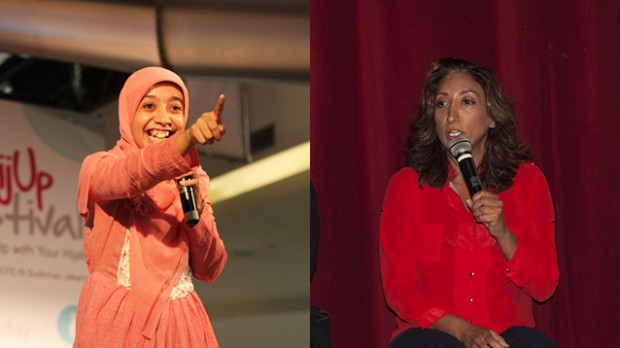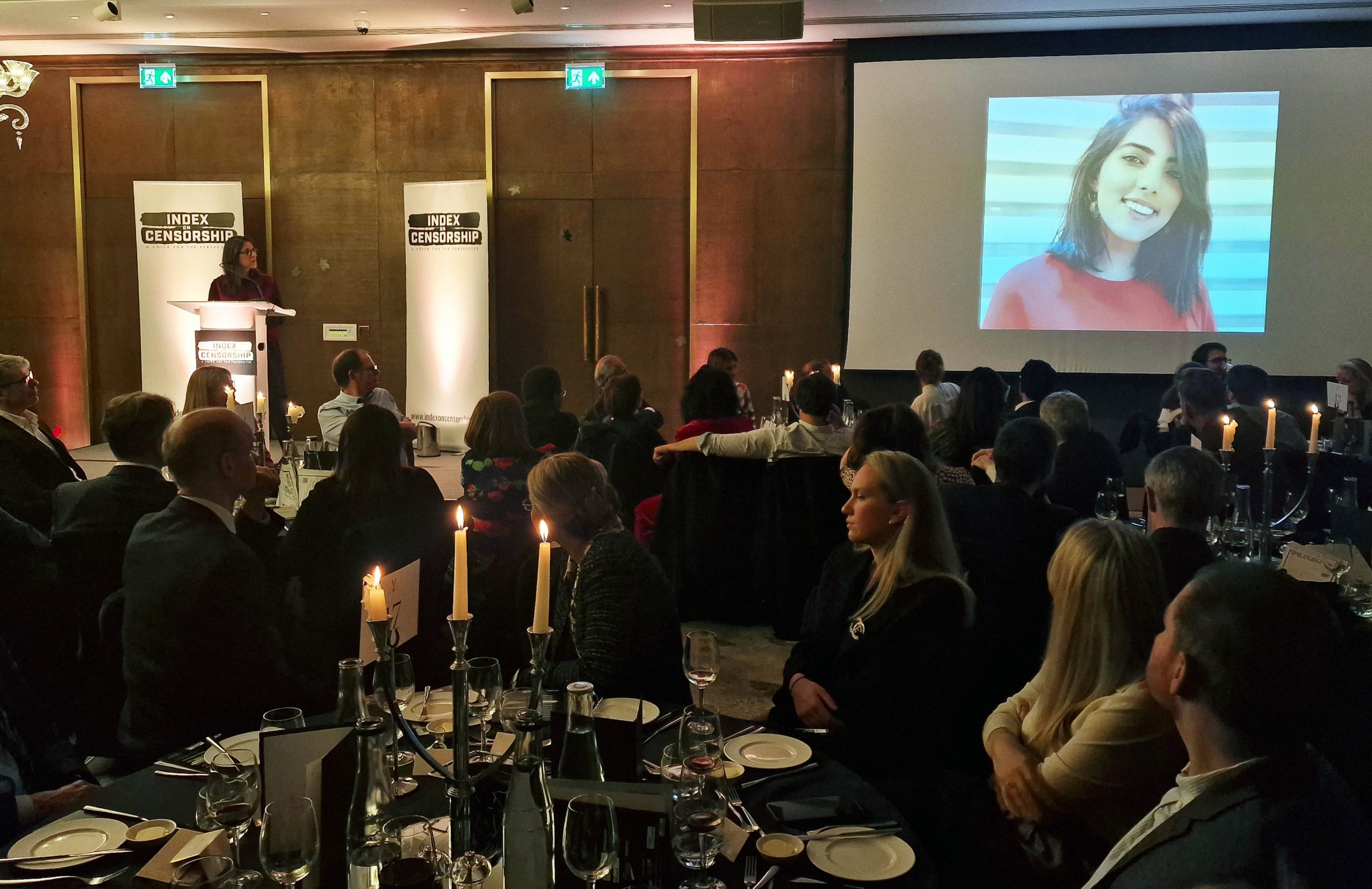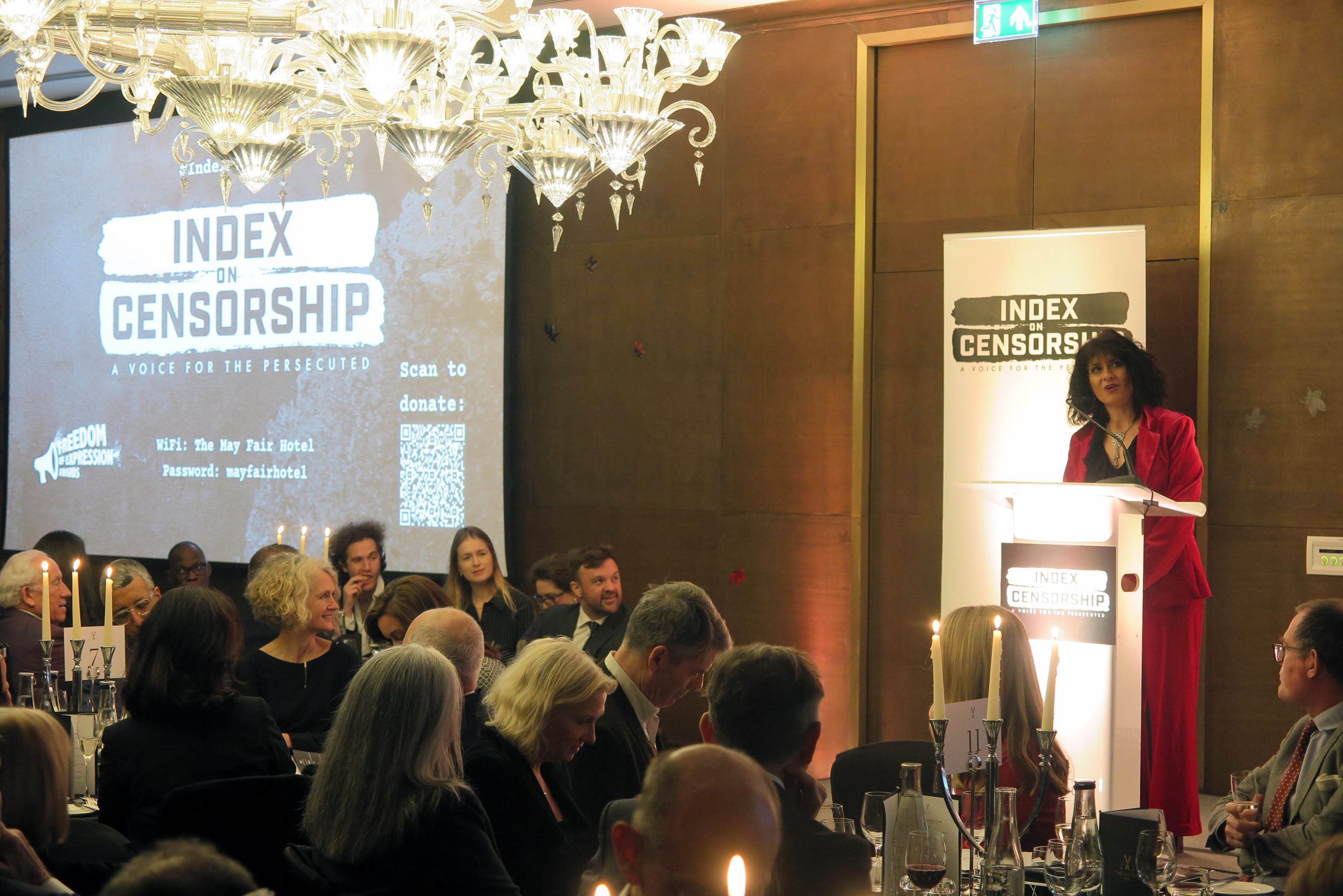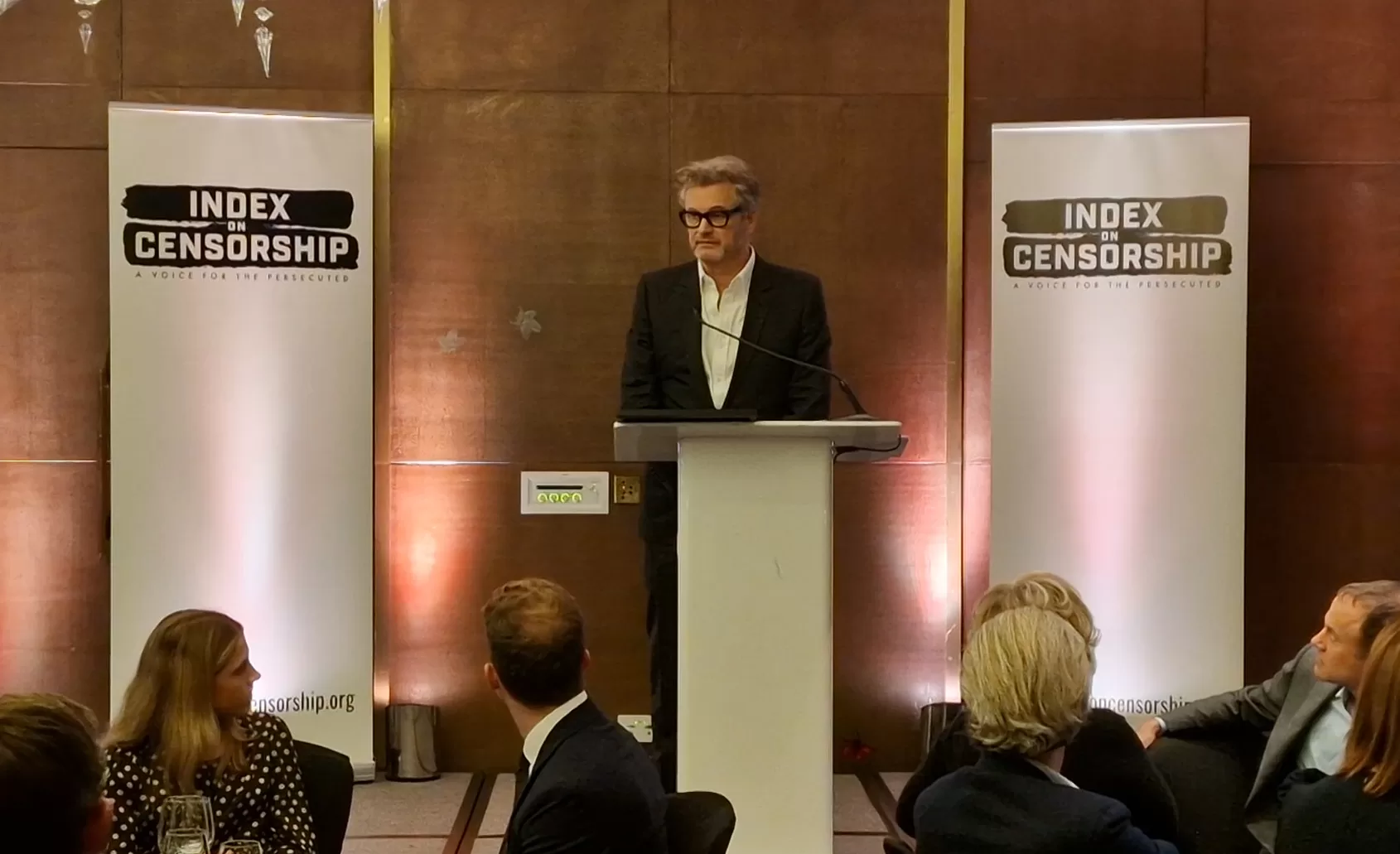Indonesian comedian Sakdiyah Ma’ruf, a nominee for the 2016 Index on Censorship Freedom of Expression Award for arts, was born to conservative Muslim family in Java and went on to become one of very few female stand-up comedians in the country to appear on national TV.
British comedian Shazia Mirza, the host of this year’s awards, talks to her about tackling no-go subjects, trying to win family approval, and how the stand-up scene is growing for women in Indonesia.

Sakdiyah Ma’ruf (left) and Shazia Mirza (right)
SHAZIA: Have your parents come to watch you do stand-up?
SAKDIYAH: My parents came to one of my shows once. It was in 2012 in one of the biggest theatres in Jakarta. I invited them to the show because it was held in a “dignified” building. I wanted to help my parents, and especially my dad, see that I was doing a “dignified” job.
I was very nervous. It was a full house. But I didn’t care whether the audience liked me or not, as long as I could get at least silent approval from my dad.
Since the show, my dad has supported me in my career as a comedian – not fully perhaps – but from this moment on, he knew that stand-up was something I did and would continue to do – in addition to the other “real jobs” I have.
I remember my parents saying they were pretty nervous about how the audience would respond to me. Perhaps my dad thought he could accept what I was doing if I gained approval from at least half of the audience.
The truth is that it isn’t always easy to get out of the house to perform. In June 2015 I was invited to open for a good friend of mine who is one of the biggest stand-up comics in Indonesia. He called me in April for the gig and it took me almost a month just to craft the right sentence to ask for my dad’s permission to perform.
SHAZIA: Do you say exactly what you want to? Or do you think: “No I can’t say that, people might get upset”
SAKDIYAH: The truth is that I rarely say exactly what I want to. I mean, can you imagine expressing all those voices in your head to the audience?
I say what I believe in; what I have experienced; what I am concerned about; what I like; what I don’t like; what I’m angry about… For me, comedy is always about telling the truth. You can’t be genuinely funny without being completely honest with yourself and your audience.
But I do self-censor, I self-censor all the time! I’m not afraid to talk about taboo topics like religion, race relation, a bit of sex etc – but only if it helps me to be honest with myself and my audience to be honest with themselves. I make sure I craft my jokes on these topics in a way that is truly funny; otherwise I’ll just sound like another girl complaining about how unfair life is.
I also make sure I’m being fair. I fact-check before I talk about something, so that I don’t just make things worse.
SHAZIA: Are you the only woman in Indonesia doing stand-up?
SAKDIYAH: No, of course not. I was the first, but the number is now growing. Every year there are new female stand-up comics performing on TV or participating in competitions.
SHAZIA: Do you feel pressure to talk about “heavy” subjects, like Islamophobia and terrorism, in your comedy? Or do you prefer to talk about lighter things sometimes – like shopping, dating, going on holidays.
SAKDIYAH: I want to talk about the issues that matter to me, things I can relate to, things that are part of who I am and what I have experienced.
I love talking about Muslims and the way they practice and interpret their religion. I talk about Islamophobia, violence towards women, the idea and construction of femininity and masculinity, my ethnicity.
Yeah, sometimes I feel such pressure to talk about “heavy” topics, but for what it’s worth, I think there is no such thing as a “light” topic in comedy. With a great comedian, even jokes about a refrigerator can bring new insights on humanity.
And I guess this is what is so beautiful about comedy: it helps us get to know who we are who others are as well. Every individual has multiple identities. I have been perceived as this Muslim girl fighting against fundamentalism through her comedy. While this is true, I do not want to just be seen as some kind of a “comedy jihadist” fighting against fundamentalists. I have layers to my identity, just like everybody else.
SHAZIA: Do you receive letters and emails from people who have seen your performances? What kind of things do they say? What do women say?
SAKDIYAH: Yes, I do. A woman once asked me whether I am a “true” Muslim. Perhaps she considered my jokes too daring or inappropriate for a Muslim woman to tell. She asked me all these questions about whether I really wear the hijab every day and whether I pray five times a day.
I like getting these kinds of responses. I feel like these people genuinely care about me or at least about Muslim women in general.




